Only Iran is not looking to score any hegemonic point, rather, it has vowed to oppose the rise of political Takfirism across the Greater Middle East, and thus offer political pluralism its day under the sun.
Where the kingdom ambitions to rise a grand Wahhabism empire - a dark caliphate of sorts, Iran has offered stubborn resistance.
On January 2, 2016 King Salman ordered for the execution by beheading of Sheikh Nimr al-Nimr, a prominent cleric turned political activist in the face of Riyadh’s repressive campaign against religious minorities. A Shia from the eastern province of Qatif, Sheikh al-Nimr was more than just a religious adjective. He stood beyond all religious denominations as his stand and his beliefs were universal. A true man of God. A true teacher of Islam, Sheikh al-Nimr spoke words of unity, justice, dignity, and above all tolerance.
His anger was only ever directed at the tyranny and barbarism of the House of Saud. But his words called not for violent retribution - his voice carried instead the memory and the message of Islam’s Imams. It was Imam Hussain who said: “If you neither believe in religion nor fear the hereafter than at least be free from tyranny and arrogance.”
There are some values which have transcended cultures, religions and even time, as they are rooted in human nature. It was Jean-Jacques Rousseau, the well-known French philosopher, who most famously defined freedom as being one of Men’s innate attribute.
And so naturally men have always reacted to tyranny with resistance - a knee-jerk reaction against a system which denies them what it is that they are: free.
THAT concept of course is completely lost on Riyadh, since the very essence of the regime is rooted in absolute submission - a form of tribalistic political ownership wrapped around a religious dogma which spews hate and vengeance to better legitimize its existence. If History is littered with despots, it is not often that a regime can claim to be both a political and a religious abomination. A violent, ascetic and absolutely reactionary theocracy, the kingdom holds life and death over its subjects.
Under the punitive rule of al-Saud women have been objectified to the extent where they are owned, and religious minorities have been viciously and systematically persecuted. Worse still, Wahhabis have criminalized all faiths and beliefs outside their own, this institutionalizing sectarianism.
In the kingdom, any critic to the king equates to apostasy. In this dystopian Islamic world Wahhabi clerics have architected, it is the abuses of Ancient Egypt which are reflected in the oppression of minorities.
And still the world powers choose to side with the kingdom, withdrawing behind their double standards and towers of hypocrisy, while freedom fighters are sacrificed to the pyre of al-Saud.
The explosion of violence which befell the Islamic world has now been pinned on Iran, under the premise Ayatollah Ali Khamenei warned al-Saud’s crimes would be answered with “divine revenge.” To better deflect and distract from the crimes Riyadh committed, the international community is looking to build an anti-Iranian narrative, hoping to whitewash a despot, to better sully the peacemaker.
In an article for Foreign Policy, Philipp Smyth, a self-proclaimed “Shia affairs” expert argues that Iran exploited Sheikh al-Nimr’s demise to project political force and rally support around its own political ideology. He wrote: “Understanding how Tehran plays a role in fostering crises of this nature is important. The Islamic Republic sees itself as engaged in a long-term struggle for control of the region’s Shiite community, which represents a tool for Iran to counter its main Sunni regional foes and promote its theocratic absolutevelayat-e faqih, which forms the basis of Iran’s clerical rule, and so-called “Islamic Resistance” ideologies.”
Profoundly prejudiced and bias, Smyth linked Sheikh al-Nimr’s rights campaign in Riyadh to what he imagines as a sectarian attempted takeover on the Sunni world. This so-called “campaign” only exists in the mind of Wahhabi Saudi Arabia. There is no plot, no Shia crescent and no Shia conspiracy theory.
Sheikh al-Nimr rose against al-Saud regime, not Sunni Islam. More importantly his calls for social justice and civil liberties were for the benefit of all people.
And while of course his main supporters were Shias - why would they not be when it is Shias who have most suffered under the ruthless rule of al-Saud monarchy - countless others recognized themselves in al-Nimr’s words.
Shia Islam does not give in to proselytism - Shia Islam is not vying for an empire. It does not need to, its ambitions lie in the championing of a just and fair society, where matters of faiths are not dictated but respected.
This revolutionary tide you see taking shape against Saudi Arabia is the expression of a people’s discontent - not sectarianism. And when I say “a people” I mean the oppressed, I mean those whose voices were made silent on account al-Saud Royals suffer no criticism.
Iran here has merely offered his support to those principles of political self-determination, Western powers appear to have lost interest in.
And yes Iranian officials did indeed warned Riyadh there would hell to pay should al-Nimr’s blood be spilled - only their warnings did not imply violence and military retribution … those are the weapons of criminals, not sovereign states. Iran Leadership implied judicial and political repercussions.
May I point out that in the case of Sheikh al-Nimr Iran assumed the very role the United Nations was too cowardly to carry. May I remind readers that there is such a thing as international law…
And yes Saudi Arabia’s embassy was torched by over-zealous protesters! But is such an infringement on Riyadh’s sovereignty worthy of such a diplomatic raucous? If one fire and one act of violence can manifest such international outrage, then I ask: where was the world’s outrage when Washington violated Afghanistan, Pakistan and Yemen’s sovereignty with its drones?
Where again was the outrage when Riyadh rained cluster bombs on Yemeni schools, hospitals and residential areas?
Iran is sitting on the right side of history here. It is Saudi Arabia which deserves your wrath and your rejection.
It is Saudi Arabia and its Takfirism which is calling for more deaths to its dogma; it is Saudi Arabia again which has exploited its political friendships and economic power to run a series of war across the MENA, NOT Iran. So enough already with the anti-Iranian narrative, especially when few can actually remember why is it they hate Iran so much.
Truly … what is it? Ask yourself for a second if your hate is not in fact the product of Riyadh’s propaganda.
“The ultimate measure of a man is not where he stands in moments of comfort and convenience, but where he stands at times of challenge and controversy” - Martin Luther King, Jr.
Catherine Shakdam is a political analyst and commentator on the Middle East. She has written for many publications and is also a regular contributor to Mehr News. Shakdam is currently affiliated with Shafaqna Institute for Middle East Studies.

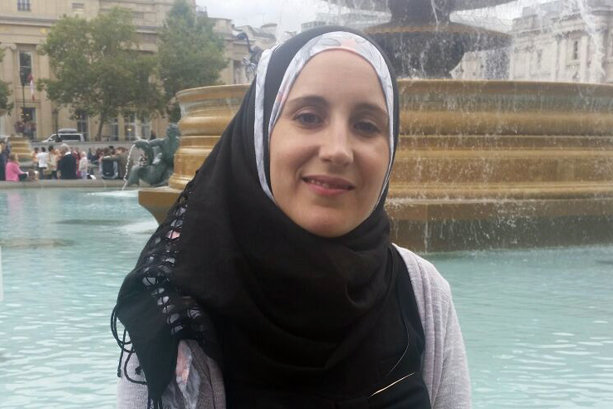
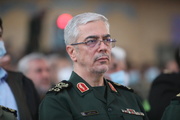

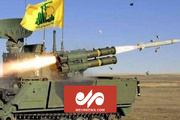

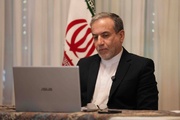
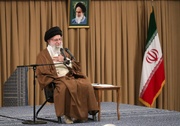
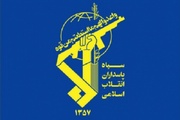
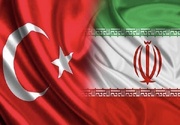
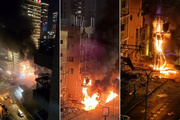
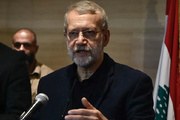


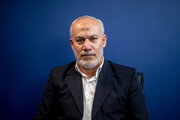
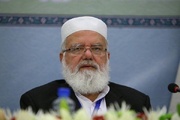
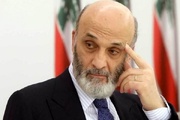
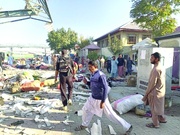
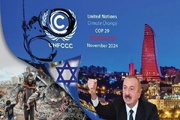

Your Comment